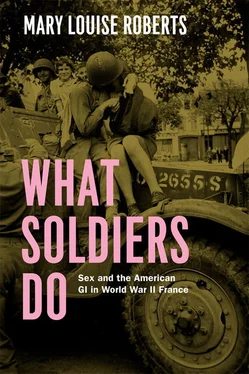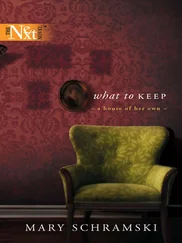174 New York Amsterdam News , 8 July 1944.
175 Chicago Defender , 14 October 1944.
176 Pittsburgh Courier , 1 July 1944.
177 NAACP’S The Crisis (March 1944) christened the Caledonia case the “Army Scottsboro Case,” linking it to the overturned 1931 convictions of nine black men for allegedly raping two white women in Scottsboro, Alabama. Because one of the accusers in the Scottsboro case had admitted to lying about the alleged rapes, it produced what Glenda Gilmore calls a “tectonic shift” in the southern landscape, after which white women claiming rape could no longer count on racist stereotypes of black men to avoid court chauvinism ( Defying Dixie , 125). The Pittsburgh Courier made the same comparison with the Scottsboro case on 22 July 1944.
178 NARA, RG 498, Entry 82, Special Staff, Public Relations Division, Executive Branch, Decimal File, 1943–45 (hereafter Entry 82), Box 6, Folder “Negroes.”
179 Brandt, Harlem at War , 164.
180 Thomas Hachey, “Walter White and the American Negro Soldier in World War II: A Diplomatic Dilemma for Britain,” in Freedom’s Odyssey: African American History Essays from Phylon , ed. Alexa Benson and Janice Sumler-Edmond (Atlanta: Clark Atlantic University Press, 1999), 456–57.
181 Walter White, A Man Named White, the Autobiography of Walter White (New York: Viking Press, 1948), 246.
182 Hachey, “Walter White,” 463.
183 White, A Man Named White , 244. White recalled that Eisenhower ordered the judge advocate general of the European theater to investigate specific cases and take corrective action both on them and on court-martial procedure more generally. According to White, “some of the more flagrant injustices were corrected.”
184 White, A Rising Wind , 24, 48–49. See also SCRBC, Committee against Jim Crow in Military Service and Training, Sc MG98, Folder 2, 8 May 1948.
185 NARA, RG 498, Judge Advocate Section, Decimal File, 1942–45, 250–250.1, Letter dated 3 April 1944.
186 Ibid., memo dated 4 April 1945.
187 NARA, RG 498, Box 27, memo dated 21 November 1944.
188 An exhaustive search of the African American press during the period 1944–45 did not turn up any mention of the rape accusations and court-martial trials in France. Some black newspapers did report on charges of sexual assault made against black soldiers in Germany. See Pittsburgh Courier , 16 June 1945, and Chicago Defender , 28 March, 21 April, 26 May, and 21 July 1945.
189 Papers of the NAACP, 1940–55, General Office File, Part 16, Board of Directors, Correspondence; ibid., William Hastie, 1943–45. Hastie spent at least part of the summer in New York reorganizing the offices of the NAACP. In the Correspondence file, see a letter dated 25 August 1944 from White to Lewis Gannett, a reporter for the Herald Tribune posted in France. White expresses his pride with black accomplishments in France, and writes to Gannett “I envy you for being in the midst of the accomplishment of that which I saw being prepared.”
190 USAJ, CMC 3858, Davis and Jordan. Neither was she given her son’s personal effects, including “a valuable wrist watch and war bonds.”
191 Col. Benjamin O. Davis was promoted to brigadier general as part of the same arrangement in 1940 between Roosevelt and black leaders that brought Judge William Hastie to the War Department. After refusing to end segregation in the army, Roosevelt sought to win back the black vote in the election of 1940. See McGuire, Taps , xxxi. Davis does not mention the trip to France in his memoir, Benjamin O. Davis, Jr.: An Autobiography (Washington, DC: Smithsonian Institution Press, 1991).
192 NARA RG 331, Entry 82, Box 6, memo dated 7 July 1944.
193 Chicago Defender , 19 August 1944. Toles was a black correspondent with the First Army in France. I was unable to find memoirs of African Americans who served in France. For black-authored novels about the ETO, see William Gardiner Smith, The Last of the Conquerors (New York: Farrar, Strauss, 1948); Avery Kolb, Jigger Witchett’s War (New York: Simon and Schuster, 1959).
194 For Eastland’s trip to Europe, see Chris Myers Asch, The Senator and the Sharecropper: The Freedom Struggles of James O. Eastland and Fannie Lou Hamer (New York: New Press, 2008), 105–6.
195 Congressional Record , 29 June 1945; Asch, Senator and Sharecropper , 114–18. For the NAACP’s response to Eastland’s filibuster, see Papers of the NAACP, 1940–55, General Office File, Part 18, Special Subjects, Series B, “James Eastland.”
196 Congressional Record , 29 June 1945. Eastland’s fantasy of the violent hypersexual black male extended beyond African Americans to the peoples of the French Empire. The senator went on to describe an alleged mass rape in Stuttgart where, he claimed, Senegalese soldiers in the French Army sexually assaulted “christian German girls from good families.” The French were quick to dismiss Eastland’s story. See Chicago Defender , 30 June, 7 July, 18 August 1945; New York Amsterdam News , 7 July 1945; Chicago Daily Tribune , 8 July, 18 July, 25 July, 27 July 1945; New York Amsterdam News , 14 July 1945.
197 For the mainstream press response, see Los Angeles Times , 30 June 1945; and the New York Times , 30 June 1945.
198 Atlantic Daily World , 6 July 1945; Chicago Daily Tribune , 3 July and 6 July 1945; Chicago Defender , 14 July 1945, and Pittsburgh Courier , 14 July 1945.
199 Atlantic Daily World , 8 July 1945. The statement was at best disingenuous. Eastland had connected the alleged rapes in Normandy to the fact that black soldiers were given guns. There was a difference between saying that black troops did not engage in combat and saying that they were not armed. See also The Crisis , August 1945.
200 Eastland’s remarks were reprinted extensively in southern newspapers. In places such as Charleston, South Carolina, and Columbia, Missouri, the papers were censored to leave out the most offensive of Eastland’s statements. See Atlanta Daily World , 17 July and Chicago Defender , 21 July 1945. In August The Crisis reprinted Eastland’s remarks, describing them as “vicious and shocking.” In December 1945, Negro Digest again reprinted an edited version of Eastland’s filibuster in the form of a roundtable addressing the question, “Are Negroes Good Soldiers?”
201 Pittsburgh Courier , 7 July 1945; Atlanta Daily World , 1 July, 5 July, and 8 July 1945; New York Amsterdam News , 7 July 1945. For the comparison to the Nazis, see also New York Amsterdam News , 14 July 1945.
202 Adriane Lentz-Smith, Freedom Struggles: African Americans and World War I (Cambridge, MA: Harvard University Press, 2009), 99. For a personal account of the French response to African Americans during the First World War, see SCRBC, William Holmes Dyer Memoirs, 1917–18.
203 The classic account of African Americans in France is Tyler Stovall, Paris Noir: African Americans in the City of Light (Boston: Houghton Miffl in, 1996). See also Marc Hillel, Vie et moeurs des GI’s en Europe, 1942–1947 (Paris: Balland, 1981), 136.
204 New York Amsterdam News , 2 September 1944. See also Ollie Stewart’s account of the Liberation in the Richmond African American , 2 September 1944.
205 As Lentz-Smith argues for the First World War ( Freedom Struggles , 99), “women became a means through which both black and white Americans expressed their thinking about manhood and civil rights.”
Читать дальше












